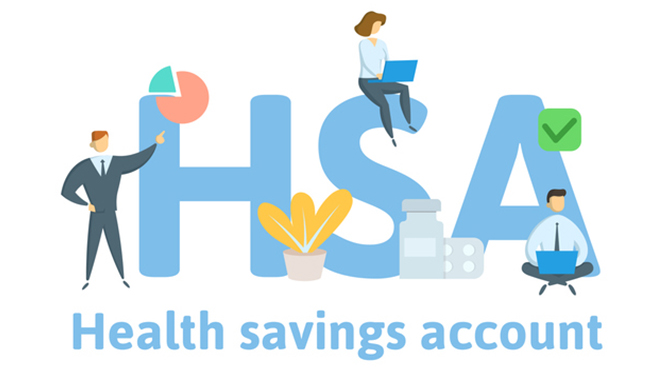The Under Utilized Benefits of a Health Savings Account
Sep 22, 2021

Healthcare can be one of the priciest yet essential parts of life’s journey. And yet, many struggle to utilize the financial tools that may help. Take Health Saving Account (HSAs), for example.
In 2019, 55% of those with HSAs that did not record a distribution also did not receive either employee or employer contributions. This suggests that the lack of distributions are due to account holders becoming disengaged from their accounts, rather than not having access to this cost-saving financial tool.1
And yet, for those looking to help manage the financial impact of healthcare, a Health Savings Account (HSA) may be just the ticket.
Health Savings Account Tax Benefits.
A large draw for many are the tax benefits inherent to HSAs:
- Contributions through an employer are always pretax
- You can invest the funds after your account balance reaches a certain level
- Distributions for qualified health expenses aren’t taxable
Additionally, unlike a Flexible Spending Account (FSA), which is funded with pretax dollars but must be used by a specific deadline, Health Savings Account contributions can remain in your account to be used for future medical bills at any time. In short, this means there is no “use it or lose it” penalty.2
Keep in mind that if you spend your HSA funds for non-qualified expenses before age 65, you may be required to pay ordinary income tax as well as a 20% penalty. After age 65, you may be required to pay ordinary income taxes on HSA funds used for non-qualified expenses. HSA contributions are exempt from federal income tax; however, they are not exempt from state taxes in certain states.
HSA Contribution Limits for 2022.
HSA contribution limits are adjusted annually for inflation. For 2022, the self-only contribution limit is $3,650 or $7,300 for families. This is a $50 increase for individuals and a $100 increase for families from 2021. The contribution limit refers to contributions from both employers and employees (or family members).
These adjustments are rounded to the nearest $50 to account for inflation rates, which are determined using the Consumer Price Index for All Urban Consumers.3
How to use your HSA.
The IRS or your HSA provider are great sources when getting started. For example, the IRS recently issued a reminder that at-home covid tests, face masks, and sanitizing wipes can all be purchased, or qualify for reimbursement, through an HSA. In addition, the IRS offers an interactive assessment tool that can take the guesswork out of what qualifies as an HSA-friendly expense.4
For more insights and resources, be sure to sign up for our Weekly Market Commentary. Follow our YouTube channel where we regularly post our Epic Market Minute videos. Follow us on LinkedIn, or like us on Facebook. And as always, please don’t hesitate to reach out to a dedicated service professional at Epic Capital.
Tags: financial advisor charlotte nc, Health Care Needs, Health Care Savings
More Insights
A thoughtful retirement strategy may help you pursue your many retirement goals. That strategy must consider many factors, and here are just a few: your income needs, the order of your withdrawals from taxable and tax-advantaged retirement accounts, the income tax implications of those withdrawals, and sequence of return risk.
Losing a spouse is a stressful transition. And the added pressure of having to settle the estate and organize finances can be overwhelming. Fortunately, there are steps you can take to make dealing with these matters less difficult.
Ever hear of critical illness insurance? This isn’t standard-issue disability insurance, but a cousin of sorts. With people living longer, it is a risk management option entering more people’s lives.
Following Iran’s missile and drone strikes on Israel over the weekend and the apparent escalation likely in any Israeli response, stocks fell sharply during Monday’s trading session. We examine the latest developments in the Middle East conflict, how stocks have reacted historically to geopolitical events, and the possible impact on markets moving forward.
Did you buy U.S. Savings Bonds decades ago? Or did your parents or grandparents purchase them for you? If they’re collecting dust in a drawer, you may want to take a look at them to see if any of your bonds have matured. If your bonds have matured, that means they are no longer earning … Continue reading “How US Savings Bonds Work”
Services
Epic Capital provides the following comprehensive financial planning and investment management services: Learn More >


 Top of Page
Top of Page











